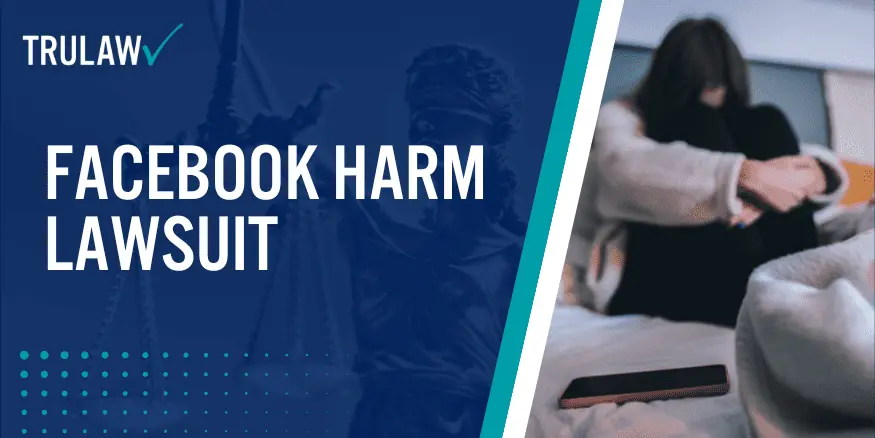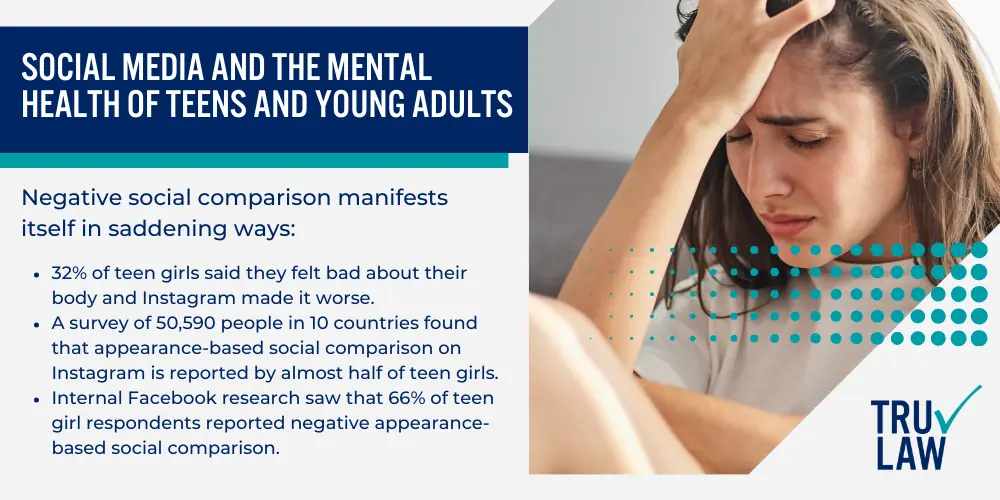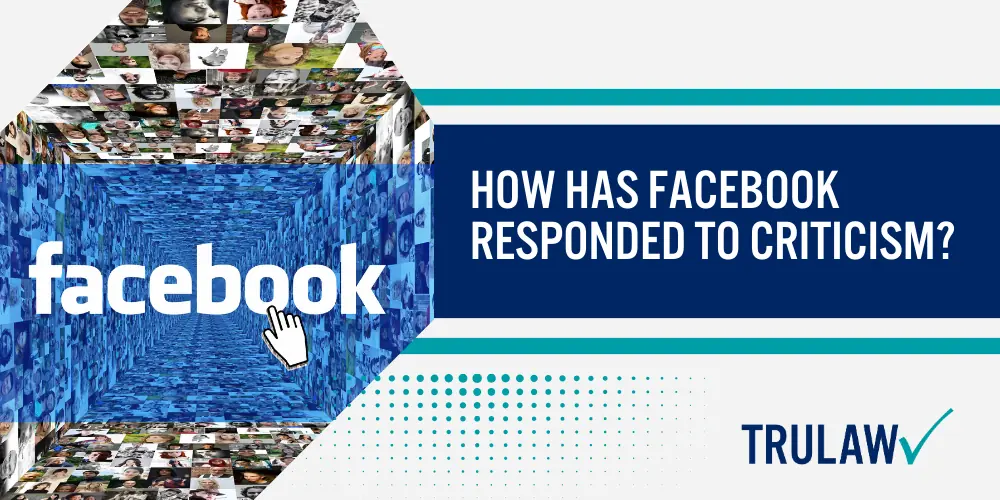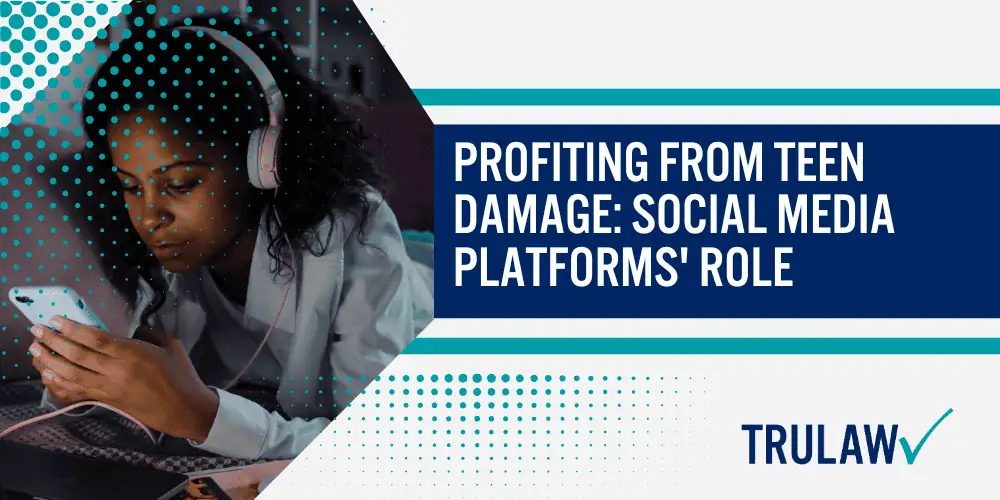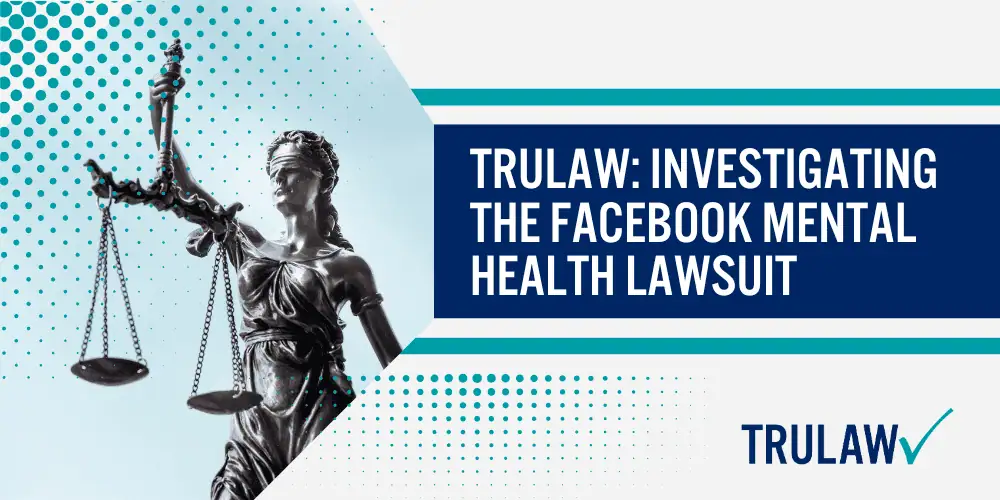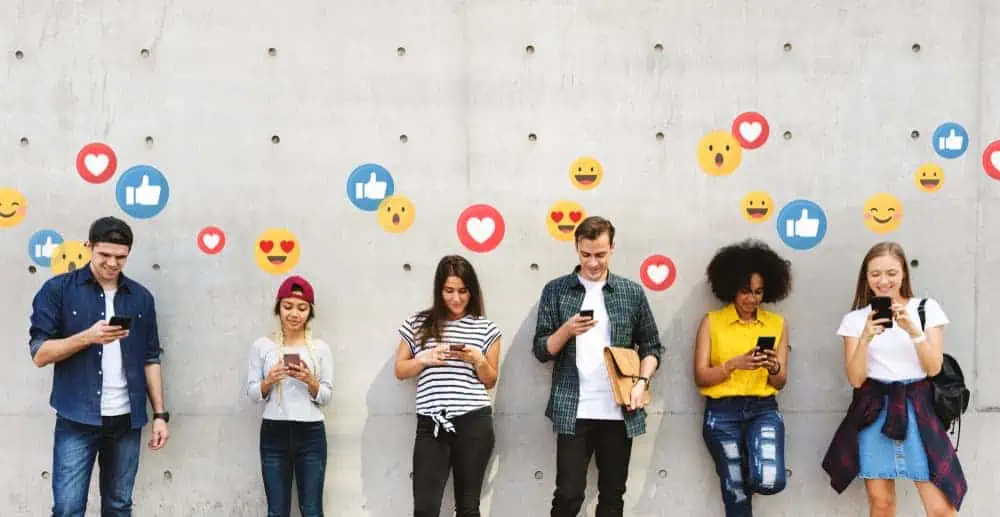
Our team of lawyers is investigating potential legal action against Facebook for putting teens and young adults at a greater risk for mental health impacts, or otherwise contributing to harmful mental health conditions.
If you or a loved one has been diagnosed with mental health issues that may be linked to Facebook or Instagram use, contact us or use the chatbot on this page to see if you qualify for a claim.
Do I Qualify for a Lawsuit?
Those who have used Facebook or Instagram and subsequently sought mental health treatment may be eligible for a Facebook harm lawsuit.
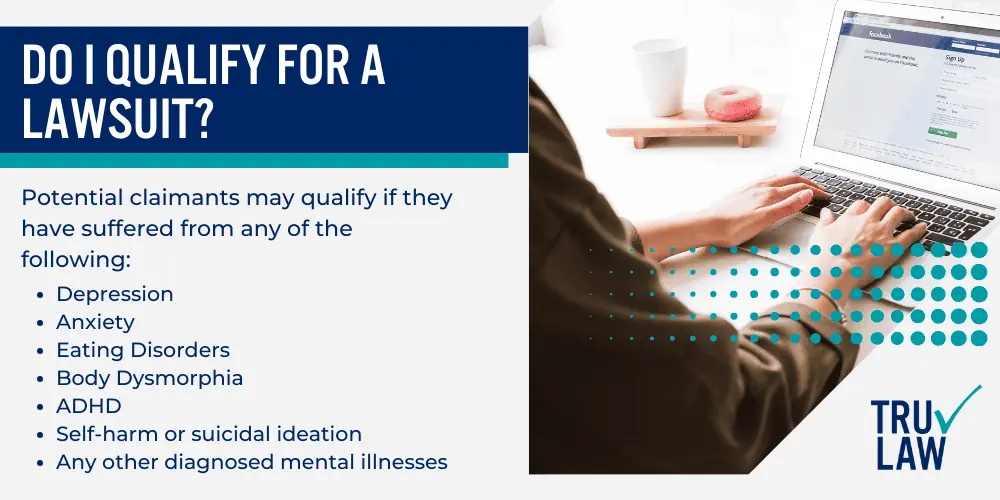
Potential claimants may qualify if they have suffered from any of the following:
- Depression
- Anxiety
- Eating Disorders
- Body Dysmorphia
- ADHD
- Self-harm or suicidal ideation
- Any other diagnosed mental illnesses
Potential Damages
Damages refer to any losses, economic or non-economic, incurred as a result of an incident.
The incident in this instance would be social media use contributing to mental health effects.
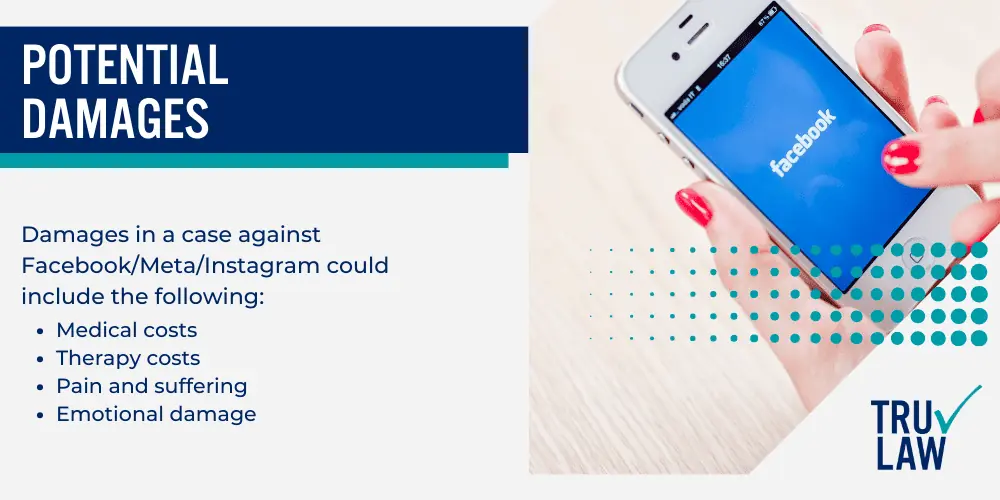
Damages in a case against Facebook/Meta/Instagram could include the following:
- Medical costs
- Therapy costs
- Pain and suffering
- Emotional damage
As we investigate further and gather clients, we may discover other potential damages able to be included in a claim.
Contact us if you are unsure whether or not you or your loved one qualifies for legal action.
